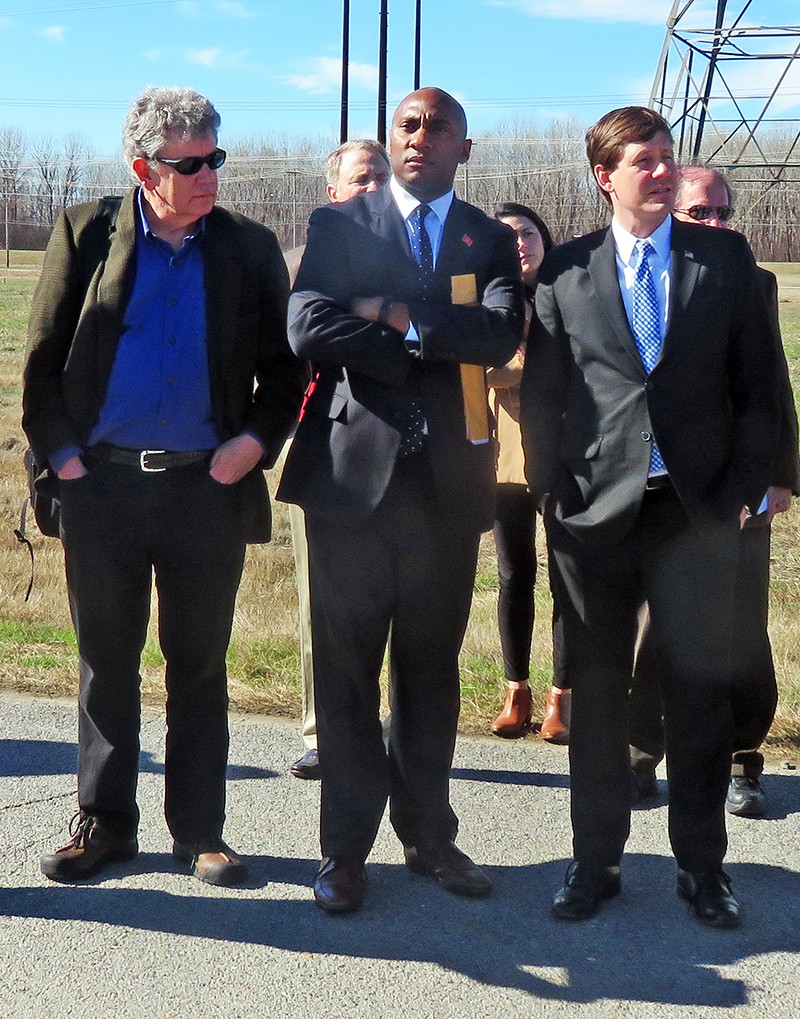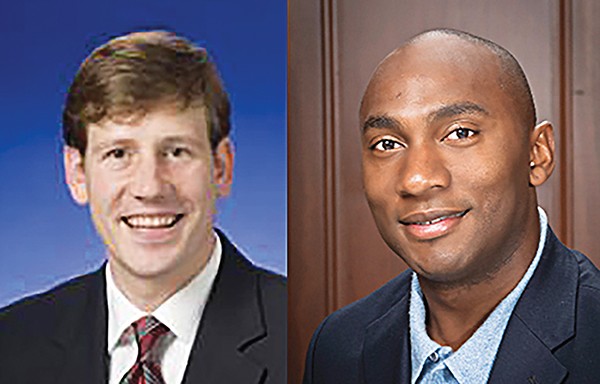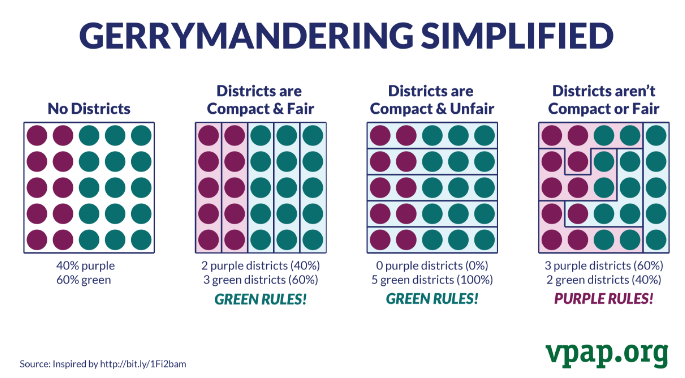 JB
JB
County Commissioners Steve Basar and Terry Roland during deliberations on Wednesday.
Two matters of significant importance to Memphis and Shelby County (considered both separately and as a single geographic unit) are hanging fire as of this week.
One involves the question of school vouchers, which is sure to come to a head in the state General Assembly before it adjourns in April. The other has to do with de-annexation legislation directly affecting Memphis and its suburbs, and this matter, too, is likely to have a reckoning in Nashville before session’s end.
VOUCHERS: Until this week, it seemed reasonably certain that the Shelby County Commission was prepared, on a tight deadline, to establish the machinery for appointing an interim state Representative to fill the state House vacancy created by the resignation last month of Rep. Mark Lovell in District 95 (Germantown, Collierville).
A schedule had already been prepared, calling for applications for the interim position to be made available between March 21st and March 27th, with applicants to be interviewed by the commission on March 29th and an appointment to be made during the Commission’s regular public meeting of April 3rd.
Given that the legislature has plans to adjourn sometime in April, that left little time for an interim Representative to serve. (Governor Bill Haslam had meanwhile issued a writ establishing a schedule for a special election, to be completed in a general election in June — well after the end of the current legislative session.)
The momentum for the Commission’s determination to appoint an interim successor to Lovell was the likelihood that at least one voucher bill, sponsored by state Senator Brian Kelsey (R-Germantown), and possibly another, sponsored by state Rep. Bill Dunn (R-Knoxville), would be among the late measures still requiring a definitive vote in the waning days of the General Assembly.
The Commission had voted unanimously on February 20 to oppose voucher legislation pending in the General Assembly. The Commission’s seven Democrats, all African Americans from Memphis districts, and six Republicans, whites with constituencies in East Memphis and the suburbs, were firm on the issue.
They all saw voucher legislation, which would enable public funding for tuition at private schools, as being a threat to the financial and logistical underpinning of both the Memphis-based Shelby County Schools district and the six independent municipal districts in the suburbs.
But a complication arose over the weekend in the form of a concerted effort among various Shelby County Democrats to persuade the seven Commission Democrats to vote as a bloc to appoint prominent Germantown Democrat Adrienne Pakis-Gillon as the interim appointee from District 95.
Inasmuch as District 95 is, by some reckonings, the most dyed-in-the-wool Republican House district in the state, the GOP members of the Commission expressed concern at this possible breach of what they considered a long-standing gentlemen’s’ agreement that governmental vacancies should be filled by members of the same parties that had occupied the seats previously.
Though that tradition had been flouted once before, in the case of a vacant Commission seat, it never had been in determining interim appointees to the legislature.
Consequently, in Monday’s meeting of the Commission’s general government committee, there came a motion from Republican Commissioner Terry Roland of Millington to abandon the idea of appointing an interim successor to Lovell, leaving the District 95 seat vacant until the 2018 legislative session, come what might on vouchers in 2017.
Roland’s motion failed on a vote of 4 ayes, 4 noes, and one abstention among the committee members present, but, ominously for opponents of the voucher bills, one who supported Roland was GOP Commissioner David Reaves of Bartlett, a former School Board member who had been arguably the most determined opponent of vouchers on the Commission and who had spearheaded the unanimous anti-voucher vote of February 20.
As late as Tuesday morning, Reaves was insisting that, as he told the Flyer, “”We need to appoint somebody to represent the district.” But on Wednesday, with partisanship threatening to supplant vouchers as the issue, Reaves had begun to backtrack on the need for an interim appointee.
He had assumed, along with other Commissioners, that the gentlemen’s’ agreement would hold, and that some moderate Republican (Reaves himself suggested former School Board colleague David Pickler) would fill the void in Nashville long enough to express the will of the Commission on the voucher issue.
Now everything was in doubt, with Democrats and Republicans beginning to eye each other across the partisan divide and a showdown scheduled for Monday, March 20, when the Commission will meet again, with one last chance to begin trying to get someone up to Nashville on behalf of District 95 before legislative adjournment.
Much depends on whether, as of March 20, there is anything resembling bloc unity among the Commission’s seven Democrats on the matter of an interim appointment for Pakis-Gillon or any other Democrat.
An informal survey of the Democratic contingent by the Flyer indicates that such is not the case, that as many as three Democratic members have yet to decide on the matter, and one or two have strong doubts about the propriety of risking long-term bipartisan comity for the sake of a transitory and perhaps Pyrrhic symbolic victory.
Especially for its effect on what looms as a forthcoming extra-tight House vote on vouchers.
DE-ANNEXATION: On Thursday, the day after the inconclusive Commission vote on District 95, the aforesaid Terry Roland was on his way to Nashville, in tandem with a group of suburbanites from the South Cordova and Southwind-Windyke areas desiring to de-annex themselves from Memphis.
The point, as Commissioner Roland explained it, was to force more or less immediate action on a de-annexation measure in the face of what appears to be a dilatory attitude by the Memphis City Council toward acting on a home-grown de-annexation alternative offered up recently by a joint city-county task force.
“They don’t want to wait around until 2020 or 2021 when the Council might or might not have got something done on the task force plan,” Roland said, referring to a “rightsizing” initiative prepared to the City Council last month by Caissa Public Strategies on behalf of the Strategic Footprint Review Task Force, the ad hoc city/county body created to explore formulas for potential voluntary de-annexations.
That report cited six areas considered suitable for de-annexation via City Council action. Several of the areas were large but thinly inhabited land masses where the cost of providing essential city infrastructure was judged to outweigh returns to the city via sales and property tax revenues. But included also and key to the proposal were the South Cordova and Southwind-Windyke areas, both annexed by Memphis relatively recently, both sources of significant revenue for the city, and both hotbeds of de-annexation sentiment.
Some residents of both those areas, while pleased at being included in the “right-sizing” plan, professed themselves at subsequent public meetings to be dissatisfied by the plan’s proposed scheduling, which put off final implementation of their de-annexation until 2020 or 2021.
These residents’ restlessness has been increased further by the apparent disinclination of the Council for a definitive vote on the right-sizing plan before the legislature’s planned adjournment in April, and further yet by a growing consensus on the Council to arrange instead for referenda down the line in the affected city areas.
Hence the decision by the Roland group to exert direct pressure on the legislature to act on its own during the current session. “I’d be fine with having the Council act on it, but it doesn’t look like they’re going to,” declared the Millington Commissioner and declared candidate for County Mayor in 2018.
If the legislature should act on its own, it could well favor a reprise of the 2016 measure proposed by two Hamilton County suburbanites, state Rep. Mike Carter (R-Oooltewah) and state Senator Bo Watson (R-Hixson), whose original measure enabled easy referenda on de-annexation by any community annexed by a city since 1998.
The Carter-Watson measure, considered Draconian by Memphis and other affected cities, passed the House last year and was tabled in a Senate committee only by dint of monumental last-ditch exertions against it by officials of Memphis and other urban areas and by the Greater Memphis Area Chamber of Commerce.
One word of caution for the politically ambitious Roland from a Council source: “Curry Todd (R-Collierville) and [Steve] McManus (R-Cordova) got a message last year” — the idea being that former state Representatives Todd and McManus may have lost their reelection battles last year at least partly due to their zeal for the Carter-Watson bill and the resultant disaffection of influential donors in commercial and financial circles.
 Jackson Baker
Jackson Baker 

 JB
JB  Jackson Baker
Jackson Baker 
